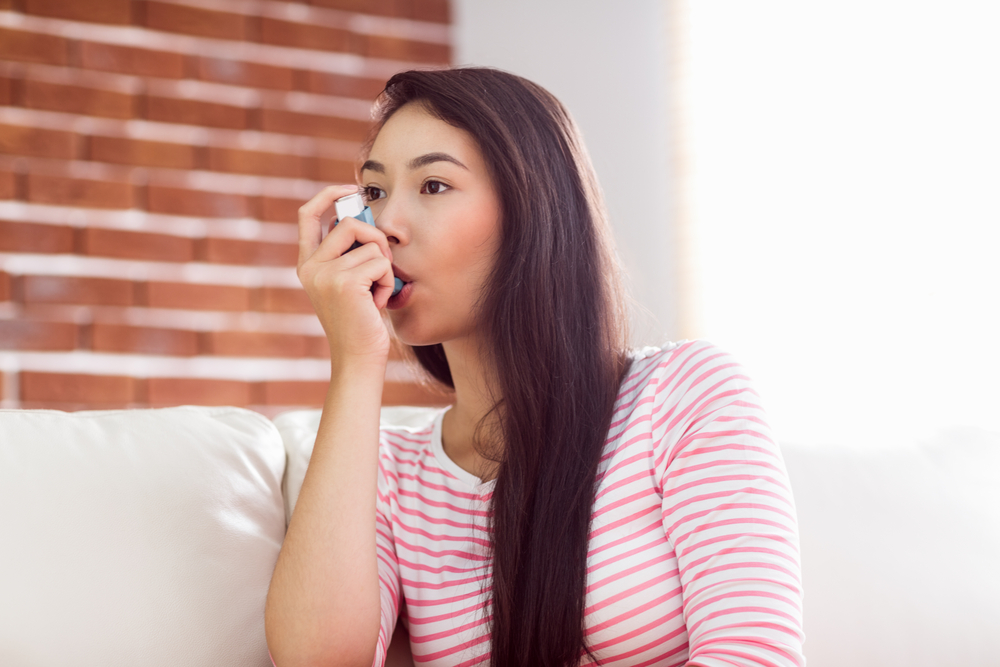
People who suffer from asthma may be concerned about their unique risk of contracting COVID-19. And now that allergy season is in full swing, distinguishing between symptoms can be extra confusing.
Saritha Kartan, MD and Ambka Sabiki, PA-C, two members of Summit Health’s Allergy and Immunology team inform us on all three respiratory conditions and how asthma and allergy sufferers can differentiate symptoms to stay safe and healthy this season.
What Causes Asthma?
Asthma is a chronic disease marked by inflammation in the airways of the lungs, or bronchial tubes, which results in swelling, tightness in the chest, or coughing. While many people develop asthma in childhood, others are diagnosed in adulthood in connection to other underlying conditions and factors such as obesity, smoking, and even hormonal fluctuations due to age.
"Be sure to discuss your symptoms with your allergist/immunologist, as the medications to treat asthma depend on the frequency and severity of your symptoms," notes Dr. Kartan. Symptoms associated with the most common types of asthma are usually induced by physical activity, but also allergies. Sabiki adds that identifying your triggers can help determine what your medication regimen should be and if you need medications year-round or seasonally.
Asthma and Seasonal Allergies
Allergic and non-allergic asthma share symptoms, from difficulty breathing and throat irritation to coughing and wheezing. "It can be challenging to identify whether a cough is due to post-nasal drip or asthma," Dr. Kartan says. "A post-nasal drip due to your allergies can also trigger asthma, further complicating things."
People struggling with allergic asthma will find that their symptoms are exacerbated with more exposure to their allergens, which can be especially troublesome in the warmer weather and when spending time outdoors for those who are pollen-allergic. "Dust mite and animal dander can also be allergic triggers for asthma—an issue when you spend time indoors on rainy days," Sabiki says.
Non-allergic asthma, though less common, is often triggered by the weather, stress, and viral respiratory infections. Again, it's important to chat with your doctor to see if there's a specific medication that can help alleviate your symptoms.
COVID-19 and Asthma
The Centers for Disease Control (CDC) reports that asthmatic people are at a higher risk of advanced complications upon contracting COVID-19 if their asthma is moderate to severe or uncontrolled. But rest assured that you aren't more likely to contract the virus. "Because we know that COVID-19 can impact the lungs, it's paramount for those with moderate to severe asthma to be consistent with their medication regimens," recommends Sabiki. After consulting with your doctor about your health, here are some additional tips you can incorporate into your management plan:
- Regularly wash your hands and wear a mask over your nose and mouth to lower your chance of exposure to the virus as well as allergens and continue to socially distance.
- Keep a two-week to 30-day supply of your asthma medication on hand in the case you do contract COVID-19 and can't visit the hospital.
- Follow up with your allergist regularly (in person or via virtual visit) to ensure that your medications are still working for you and promoting good health.
- Get the COVID-19 vaccine. All individuals 12 years of age and older who live, work, or study in New Jersey and New York are currently eligible for the COVID-19 vaccine. However, you must be at least 18 to receive the Moderna or Johnson & Johnson vaccine.
Summit Health’s Allergy and Immunology department can help you manage asthma, seasonal allergies, recurrent infections, immune deficiencies, and hypersensitive or immune system reactions. To find a provider, please visit our website page.
